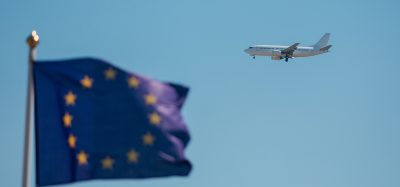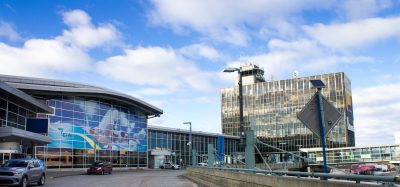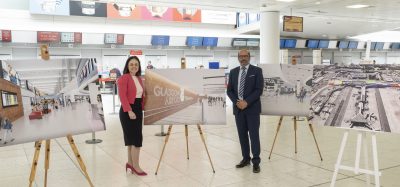Manchester Airports Group – Environmental Agenda
- Like
- Digg
- Del
- Tumblr
- VKontakte
- Buffer
- Love This
- Odnoklassniki
- Meneame
- Blogger
- Amazon
- Yahoo Mail
- Gmail
- AOL
- Newsvine
- HackerNews
- Evernote
- MySpace
- Mail.ru
- Viadeo
- Line
- Comments
- Yummly
- SMS
- Viber
- Telegram
- Subscribe
- Skype
- Facebook Messenger
- Kakao
- LiveJournal
- Yammer
- Edgar
- Fintel
- Mix
- Instapaper
- Copy Link
Posted: 30 May 2008 | Penny Coates, Managing Director, Manchester Airports Group, Regional Airports Division | No comments yet
Manchester Airports Group (MAG) announced in 2006 that all ground operations within the Group – Manchester, East Midlands, Bournemouth and Humberside – would be carbon neutral by 2015.


With this in mind the future growth of our business depends on our ability to meet our environmental commitments, so we are aiming to ensure that everyone working at our airports is playing their part in our move towards being carbon neutral, and this desire is now driving the development of the business.
MAG has a proven track record on the environment. Having invested £18m in ecology and land reconstruction work around the development of Runway 2 at Manchester this is an area that we continue to invest in to this day. As part of the same process, legal limits on noise were set down as part of the legal agreement around the construction project, and we continue to enforce them today. Our record has been strengthened with a twenty-year history of working with the Centre for Air Transport and the Environment (CATE) at Manchester Metropolitan University (MMU) to understand and mitigate against the effects of aviation.
As an example, our noise monitoring systems ensure that local residents are able to monitor aircraft noise. Around East Midlands, we have several permanent noise monitors in the local communities. Across the Group, we have a consistent record of fining those aircraft that breach the noise limits with the sums redirected to Community Funds, which then invest them back in to local community projects.
Aircraft noise reduction
Noise remains a key issue for those living around our airports, and we continue to operate noise limits. East Midlands was the first airport in Europe to offer WebTrak, an online facility to view aircraft operations in its airspace, and that facility also operates at Bournemouth. We are committed to achieving a balance between maximising the benefits of our operations while minimising the environmental impact.
The Group’s approach strongly supports the idea that we all need to take responsibility for those emissions that we can control, hence why we made the radical commitment to make the operation of our sites carbon neutral. The Airports Council International (ACI) has supported this move for airport operators around the world, and others are taking this on board and persevering with achieving their own target.
As a responsible airport operator, we have always taken a pro-active approach to dealing with our environmental impacts. Along with our work with CATE we are also supporting ongoing research into the development of a sustainable aviation system, through our involvement in the OMEGA programme. This is a knowledge transfer scheme based at Manchester Metropolitan University that aims to take the best research out of academia from institutions such as Cranfield, Oxford and Loughborough Universities, and input that know-how into the industry with companies such as MAG, Boeing, BAA and Airbus.
As an example, two areas in which our approach was assisted by working alongside CATE researchers were; our noise control programme, and our community relations programme. Our community relations work aims to ensure that we work with our local communities to lessen the impact of the airport in their locality, but also support them with our Community Trust Fund, established to enhance and improve both the natural and built environment. Our noise control policy has ensured that increased financial penalties apply to departing aircraft exceeding new lower maximum noise levels. Fines collected are reinvested in the local community through the Community Trust Fund.
Sustainable aviation
CATE professors have been heavily involved in the work of the Inter-governmental Panel on Climate Change, and have provided scientific analysis on how aviation will operate in the European Union’s Emissions Trading Scheme. It is our ability to utilise this know-how, through our close working relationship, that will assist us as we work towards even greater understanding of our environmental impacts and configuring how we work to mitigate them.
To further support our background in research, MAG is also a member of the Sustainable Aviation coalition in the UK, which brings together the main players from the UK’s airlines, airports, manufacturers and air traffic management providers, working under one strategy to ensure the long-term development of the sector.
Our carbon neutral commitment includes the emissions from buildings and ground support vehicles, but doesn’t extend to aircraft, which has attracted some comment. We are supporting airlines to manage their emissions wherever we can, and see the proposed inclusion of airlines within an emissions trading scheme as the next step forward. The European Union’s Emissions Trading Scheme can provide an opportunity for airlines to develop better technology and bring more efficient aircraft forward in production, while giving them the flexibility of determining how and where emissions reductions can be achieved.
When the European Union committed to cutting its emissions by 8% from 1990 levels by 2012 under the Kyoto protocol, the emissions trading scheme was determined to be Europe’s principle mechanism to achieve those targets. Alongside emissions trading, other more efficient measures such as technological, operational and infrastructure developments will deliver more direct environmental benefits. Market pressure will increasingly encourage changed behaviour in our airline fleets and operations to a point where we see the best performers gaining the greatest benefit.
While there may be factors outside our control, we are able to have influence over more than those emissions under our direct responsibility. So, for example, we are continuing to support public transport links with a third railway platform under construction at Manchester, and the completion of the Parkway station near East Midlands Airport; which will provide passengers with alternative means of getting to the airport, and in the process see a decrease in emissions from cars. Investment in public transport is also taking place around Bournemouth as part of the construction of a new terminal on site. At East Midlands we work in a partnership with the transport providers and the city and county councils to operate convenient and fast connections to the airport. In doing so, we invest in public transport options. The Skylink service operates to Leicester, Nottingham and Derby to reflect the wide area we serve.
Across the four sites we are also working with the businesses located within our airports to ensure that the concept of carbon neutral operations is embraced; so that new lighting and energy use conforms to our ambitions. Whilst there is still a long way to go with our carbon neutral commitment, we have made real progress with energy conservation across our sites and have introduced more than fifty schemes in areas such as the baggage handling system, all of which have ensured annual cost savings of £1.4m and carbon savings of 6,214 tonnes.
We originally started buying renewable electricity in 2004 but have progressively increased the proportion of our electricity that we get from renewable sources each year since; so that in 2008/09, 30% of our electricity will be coming from renewable sources. Our commitment to using renewable energy is now continuing with investigations into how we can generate our own energy on site. At East Midlands we have already secured planning permission for four wind turbines, which will provide 10% of the site’s electricity generation, while the use of biomass and ground source heat pumps is also being investigated at Bournemouth. The biomass would aim to use biodegradable fuel sources from the surrounding area cutting down on transportation costs.
In line with these aims, a trial of a micro-wind turbine is already taking place at Manchester where we are experimenting with a roof-mounted wind turbine system designed for installation on buildings in urban areas. When wind hits the side of a building, it travels upward at an increased rate of speed so the wind patterns at a building’s edge generate more energy than those on the flat section of a roof, ensuring more energy is produced. With the UK Government setting a target of 20% UK electricity generation from renewable sources by 2020; at Manchester we have ambitions to exceed this target by generating over 25% of our own electricity from on and off-site renewable energy schemes before increasing that to 40% by 2030.
The Aviation Viewing Park at Manchester is also home to Concorde, and construction on its new hangar will begin in the summer of 2008. The Group’s property development arm of the business, Manchester Airports Developments Ltd (MADL), now briefs all design teams so that new buildings conform to our new low carbon ideas and fit with our new carbon neutral objective. New developments are required to contribute to their own energy generation using ground source heat pumps, biomass, solar power, or possibly wind turbines and the new hangar will be a public example of our new objectives.
The situation in the UK is currently a high profile issue with concern coming from the public, government and media over the impact of aviation; so MAG is also involved in the Flying Matters coalition. A campaign aimed at bringing balance to the debate while reaching key opinion formers and policy makers about the benefits of aviation. The coalition includes the business community, trade unions, tourism bodies and a wide range of air transport users, in addition to the aviation industry who benefit from aviation and they have done much to balance the debate. Our industry provides positive social and economic benefits for the world and aviation will have a role to play in the future so our involvement with Flying Matters will continue to ensure that its members retain a voice in the debate.
In the last few weeks the group endorsed the Industry Commitment to Action on Climate Change that was signed by the leaders of the aviation industry at the Air Transport Action Group’s (ATAG) summit in Geneva. The declaration brought together all sectors of commercial aviation – aircraft manufacturers, airlines, airports, air traffic control and engine manufacturers – for the first time. This highlighted the importance we are all placing on environmental issues and MAG’s endorsement of the agreement confirmed how our own carbon neutral ambitions are contributing to the wider efforts of the entire industry. As we go forward, our commitment to being carbon neutral at East Midlands, Bournemouth and Humberside for 2012 and Manchester for 2015 will continue to shape our progress.
About Penny Coates
Penny Coates became Managing Director of East Midlands Airport in April 2005. She was appointed MD of Manchester Airports Group’s Regional airports, East Midlands, Bournemouth and Humberside Airport, a year later.
Penny’s experience since graduation has included roles with Mars Inc, Pepsi Co and Asda in a variety of roles and functions culminating in heading up Asda’s ‘Own Label’ business.
Additionally, Penny holds a Non-Executive Director position with the Melton Mowbray Building Society and is a member of the Governing Body of Loughborough University.
Penny is currently leading a cross-airport group utilising the knowledge of a variety of different roles from across the group that is tasked with delivering on MAG’s environmental commitments.


















